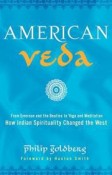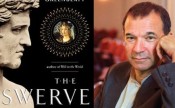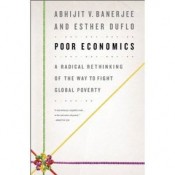DISRUPTIVE: BIO-INSPIRED ROBOTICS features three separate interviews with (1) RADHIKA NAGPAL, (2) ROBERT WOOD, and (3) CONOR WALSH
Written on October 7th, 2015
Welcome to the second episode of my new monthly podcast series produced with Harvard’s Wyss Institute for Biologically Inspired Engineering.
DISRUPTIVE: BIO-INSPIRED ROBOTICS features three separate interviews with (1) RADHIKA NAGPAL, (2) ROBERT WOOD, and (3) CONOR WALSH. From insects in your backyard, to creatures in the sea, to what you see in the mirror, engineers and scientists at Wyss are drawing inspiration to design a whole new class of smart robotic devices
In this one, ROBERT WOOD discusses new manufacturing techniques that are enabling popup and soft robots. His team’s ROBO-BEE is the first insect-sized winged robot to demonstrate controlled flight.
In part one, RADHIKA NAGPAL talks about her work Inspired by social insects and multicellular systems, including the TERMES robots for collective construction of 3D structures, and the KILOBOT thousand-robot swarm. She also speaks candidly about the challenges faced by women in the engineering and computer science fields.
In part three, CONOR WALSH discusses how a wearable robotic exosuit or soft robotic glove could assist people with mobility impairments, as well as how the goal to create real-world applications drives his research approach.
The mission of the Wyss Institute is to: Transform healthcare, industry, and the environment by emulating the way nature builds, with a focus on technology development and its translation into products and therapies that will have an impact on the world in which we live. Their work is disruptive not only in terms of science but also in how they stretch the usual boundaries of academia.
http://wyss.harvard.edu/
– See more at:
DISRUPTIVE: BIO-INSPIRED ROBOTICS Radhika Nagpal Interview
DISRUPTIVE: BIO-INSPIRED ROBOTICS Conor Walsh Interview
Robert Wood’s interview transcript
Q&A: Q&A: PHILIP GOLDBERG/GREG EPSTEIN – Authors
Written on November 18th, 2014 |
Q&A: STEPHEN GREENBLATT, National Book Award Winner, THE SWERVE: How the World Became Modern
Written on January 21st, 2012 |
Aired 01/15/12
In the winter of 1417, a short, genial, cannily alert man in his late thirties plucked a very old manuscript off a library shelf, saw with excitement what he had discovered, and ordered that it be copied. The man was Poggio Braccionlini, the greatest book hunter of the Renaissance. His discovery was the last surviving manuscript of an ancient Roman philosophical epic, On the Nature of Things by Lucretius—a beautiful poem of the most dangerous ideas: that the universe functioned without the aid of gods, that religious fear was damaging to human life, and that matter was made up of very small particles in eternal motion, colliding and swerving in new directions.
The copying and translation of this ancient book fueled the Renaissance, inspiring artists such as Botticelli and thinkers such as Giordano Bruno; shaped the thought of Galileo and Freud, Darwin and Einstein; and had a revolutionary influence on writers such as Montaigne and Shakespeare and even Thomas Jefferson.
Stephen Greenblatt is John Cogan University Professor of the Humanities at Harvard University. Among his books are Will of the World: How Shakespeare Became Shakespeare, a Finalist for the 2004 National Book Award in Nonfiction and a New York Times best seller, and Hamlet in Purgatory. He holds honorary degrees from Queen Mary College of the University of London and the University of Bucharest.
Q&A: Paula Caplan, Author/Psychologist/Playwright
Written on August 4th, 2011 |
Aired 07/31/11
PAULA CAPLAN, a clinical and research psychologist, is currently Affiliate at the DuBois Institute and Fellow at the Women and Public Policy Program at the Kennedy School of Government, both at Harvard University. She has been a Lecturer at Harvard and a Professor of Applied Psychology and Head of the Centre for Women's Studies in Education at the Ontario Institute for Studies in Education. She is the author of 11 books, including Don't Blame Mother: Mending the Mother-Daughter Relationship; You're Smarter Than They Make You Feel; They Say You're Crazy; and her latest, When Johnny and Jane Come Marching Home: How All of Us Can Help Veterans. Paula is also a playwright.
Q&A: ESTHER DUFLO, Professor of Economics at MIT
Written on April 28th, 2011 |
Aired 04/24/11
ESTHER DUFLO, a Professor of Economics at MIT, has received numerous honors including a John Bates Clark Medal for the best American economist under 40 in 2010, a MacArthur "genius" Fellowship in 2009. She was recognized as one of the best eight young economists by the Economist Magazine, one of the 100 most influential thinkers by Foreign Policy, and one of the "forty under forty" most influential business leaders under forty by Fortune magazine in 2010.
Together with Abhijit Banerjee and Sendhil Mullainathan of Harvard University, she founded the Abdul Latif Jameel Poverty Action Lab in 2003, and authored with Banerjee, the new book, POOR ECONOMICS: A Radical Rethinking of the Way to Fight Global Poverty

